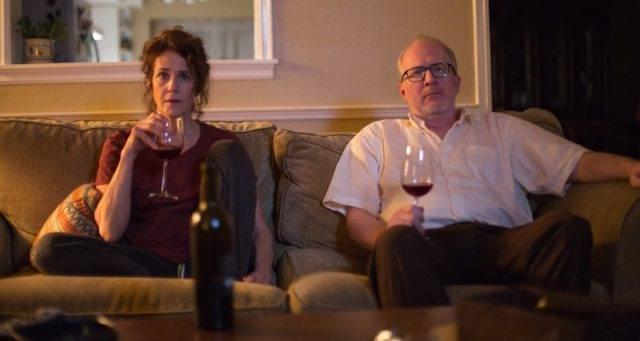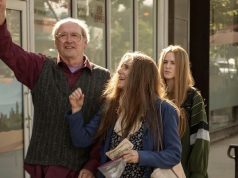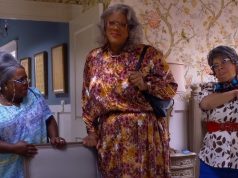
Don’t let the comparison oversell it, but “The Lovers” is like a Shakespearean comedy soaked in mid-career Woody Allen: urbane, well-acted, and slightly problematic. A sunny farce, albeit one with three-dimensional characters, it tells a story that ends happily for the people in it but not necessarily for us.
Mary (Debra Winger) and Michael (Tracy Letts) are an unhappy long-married couple, both having affairs and each secretly planning to leave the other after their son (Tyler Ross) is done visiting from college. Mary is in love with a writer named Robert (Aidan Gillen); Michael has Lucy (Melora Walters), a dance instructor. Neither illicit relationship is merely a fling — they have blossomed into true love. But while Mary and Michael are waiting for the right time to end their marriage, wouldn’t you know it, they start re-falling love with each other.
Writer-director Azazel Jacobs’ astute screenplay trips merrily through the lies and alibis that (one assumes) must accompany adultery, which become funnier when you’re lying to your lover so you can hook up with your spouse. It’s full of details that ring true, like Michael having Lucy listed in his phone as “WORK” in case Mary sees an incoming call. But more crucial are the performances. Winger (who needs no introduction) and Letts (a powerhouse stage actor and playwright who merits big-screen stardom) play their characters’ mixed emotions with impeccable finesse, establishing a relationship that feels well worn and lived-in. (Gillen and Walters also do fine work as the paramours, giving life to the relationships that would often be underwritten in a story like this.)
Sometimes Jacobs leaves things unsaid and lets us watch as Michael and Mary reflect, realize, and decide, their thought processes as vivid as if they’d verbalized them. Other times, he gives them coy, playful dialogue that lets them talk circles around each other. We can see why they fell in love in the first place, as well as why it got stale.
The story’s resolution, though unexpected, suits the characters as we’ve come to understand them. It’s not the ending I would want, or the one I think they should want, but it’s clearly the one they do want. To me it feels cynical, a downbeat comment on love and marriage, but don’t let it bring the mood down. All’s well that ends well, as they say.
B+ (1 hr., 34 min.; )





